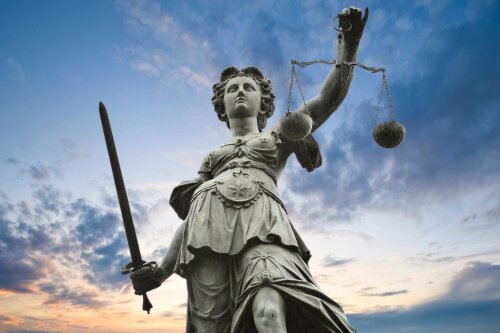Best Copyright Lawyers in Walnut Creek
Share your needs with us, get contacted by law firms.
Free. Takes 2 min.
List of the best lawyers in Walnut Creek, United States
About Copyright Law in Walnut Creek, United States:
Copyright law in Walnut Creek, United States provides creators with the legal right to protect their original works such as writings, music, artwork, and software. This protection allows creators to control how their works are used, reproduced, and distributed.
Why You May Need a Lawyer:
You may need a lawyer for copyright-related issues such as infringement, licensing agreements, fair use disputes, and DMCA takedown notices. A lawyer can help you understand your rights, navigate the legal process, and ensure your works are properly protected.
Local Laws Overview:
In Walnut Creek, United States, copyright laws are governed by federal statutes such as the Copyright Act of 1976. These laws protect original works fixed in a tangible medium of expression, granting creators exclusive rights to their works for a specified period of time.
Frequently Asked Questions:
1. What does copyright protect?
Copyright protects original works of authorship, including literary, musical, dramatic, and artistic works, as well as software and architectural designs.
2. How do I register a copyright?
You can register a copyright with the U.S. Copyright Office by submitting an application, a non-refundable fee, and a copy of the work being registered.
3. What is fair use?
Fair use is a doctrine that allows limited use of copyrighted material without permission for purposes such as criticism, comment, news reporting, teaching, scholarship, or research.
4. What is copyright infringement?
Copyright infringement occurs when someone uses a copyrighted work without permission, violating the exclusive rights granted to the copyright holder.
5. How long does copyright protection last?
Copyright protection typically lasts for the life of the author plus 70 years, or for works created by multiple authors, 70 years from the death of the last surviving author.
6. Can I use copyrighted material if I give credit to the creator?
Providing credit to the creator does not automatically make the use of copyrighted material legal. Permission from the copyright holder is still required.
7. What is a licensing agreement?
A licensing agreement is a contract between the copyright holder and another party, granting permission to use the copyrighted work under specified terms and conditions.
8. What is a DMCA takedown notice?
A DMCA takedown notice is a notification sent to an online service provider alleging that copyrighted material is being used without permission, requesting its removal from the website.
9. Can I copyright an idea?
Copyright protects original works of authorship but does not protect ideas, concepts, systems, or methods of operation. To be eligible for copyright protection, the work must be fixed in a tangible medium of expression.
10. Do I need a lawyer to enforce my copyright?
While it is not required to have a lawyer to enforce your copyright, legal assistance can help you navigate complex legal issues, protect your rights, and ensure proper compensation for any infringement.
Additional Resources:
For more information on copyright law in Walnut Creek, United States, you can visit the U.S. Copyright Office website at www.copyright.gov. You can also seek guidance from intellectual property attorneys, local bar associations, and legal aid organizations.
Next Steps:
If you require legal assistance in copyright matters in Walnut Creek, United States, consider consulting with an experienced copyright attorney. They can provide personalized advice, represent you in legal proceedings, and help safeguard your creative works.
Lawzana helps you find the best lawyers and law firms in Walnut Creek through a curated and pre-screened list of qualified legal professionals. Our platform offers rankings and detailed profiles of attorneys and law firms, allowing you to compare based on practice areas, including Copyright, experience, and client feedback.
Each profile includes a description of the firm's areas of practice, client reviews, team members and partners, year of establishment, spoken languages, office locations, contact information, social media presence, and any published articles or resources. Most firms on our platform speak English and are experienced in both local and international legal matters.
Get a quote from top-rated law firms in Walnut Creek, United States — quickly, securely, and without unnecessary hassle.
Disclaimer:
The information provided on this page is for general informational purposes only and does not constitute legal advice. While we strive to ensure the accuracy and relevance of the content, legal information may change over time, and interpretations of the law can vary. You should always consult with a qualified legal professional for advice specific to your situation.
We disclaim all liability for actions taken or not taken based on the content of this page. If you believe any information is incorrect or outdated, please contact us, and we will review and update it where appropriate.








